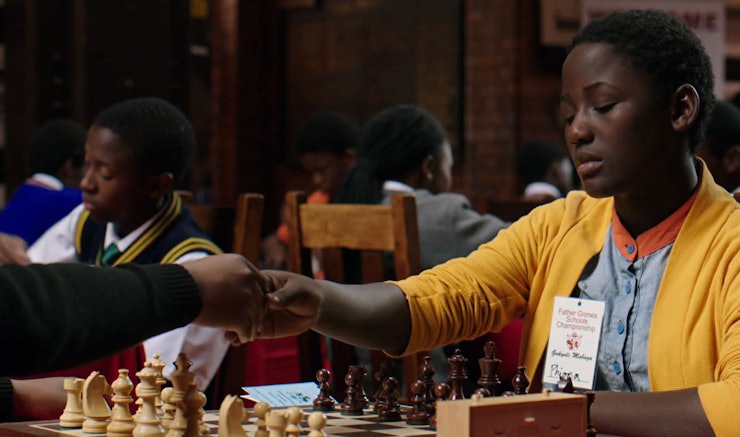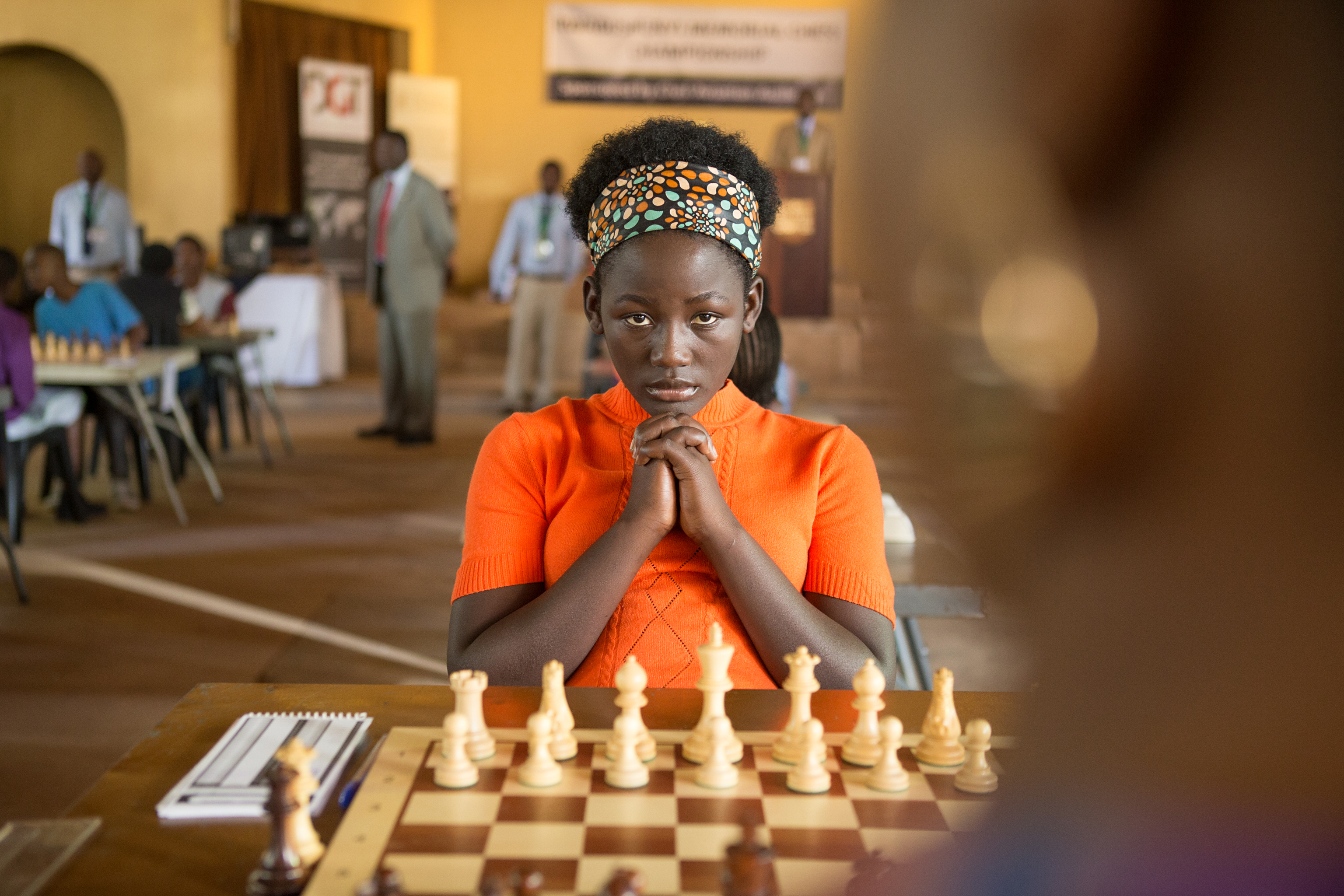The Queen of Katwe is a movie based on the true story of a young girl Phiona Mutesi from a rural part of Uganda who went on to master the skill of playing chess in her teenage years, despite the challenges her circumstances presented. The movie struck a chord in my heart from the very beginning to the end, and made me realize that many of the lessons contained in it could be beneficial to those hoping to make giant strides in this new year. I'll try not to include any spoilers but I can't promise anything.


#1 Curiosity is the mother of growth: So many people are content with knowing just what they know and are not interested in learning anything new. In spite of the fast-paced world we live in, many people are content to remain stuck with what they are good at, never willing to venture into what they could learn if they expressed a little bit of curiosity.
#2 You should not care about the material possessions you lack. The wealth of knowledge you carry is all that matters. Comparing yourself to others in terms of material possessions will only result in an inferiority complex. Stand tall wherever you are and embrace the wealth of knowledge you possess.
#3 Take criticism in good stride: Many people die even from constructive criticism; the arrogance we tend to have in ourselves is so much that we wouldn't take criticism even if it was meant to make us better. There's a scene in the movie where the other children at the Chess club told Phiona (the Queen of Katwe) that she had an unpleasant odour. She didn't fight back or try to find something she could insult them with. She went home and took a bath! My eyes widened at that scene. Lesson learned - not every criticism is bad; and not every criticism deserves a backlash. Sometimes do what is necessary to improve yourself.
#4 Realize the value of purpose: One of the very admirable characters in this story is the chess coach, Robert Katende - a man who was a qualified engineer, and was offered a job as an engineer which he refused to accept. He chose to remain a chess coach and work with a ministry outreach instead. He was more connected to his purpose than he was to the prospect of earning more money while living an unfulfilled life. The saddest thing in life is a life without fulfilment (paraphrasing Dr Myles Munroe here). Sometimes you may have to accept lesser pay to walk the path of your purpose, but trust me when I say you will not feel like you are missing a thing.

#5 Choose a partner who values purpose: There are many remarkable people in this story, and one of them is Robert Katende's wife - a woman who on hearing that her husband declined an offer from the engineering firm to continue coaching children as part of the ministry outreach, quickly reminded him of the importance of following his dreams and walking in his purpose. Now who does not want a partner like that?!
#6 Don't be out of rhythm: It is important to take note of the positive trends around us and allow ourselves to take part in them. One of the sad characters in this story is that of Phiona's sister who became a victim of circumstances, rather than a proponent of possibility. Lesson learned: Learn to be a part of positive rhythms rather than a subject of adverse circumstances
#7 Don't ever give up and surround yourself with those who won't let you! There were times when Phiona gave up. There were times she couldn't do it anymore, times when she wanted to go back to selling maize - back to the life she knew even though it yielded nothing, but from her mother, her coach, her brother and even her neighbours came the encouragement that awakened fresh zeal within her everytime she gave up. She didn't win all her games, but she had a mother who was willing to do anything to make her succeed. She had neighbours who said "you will win next time". She surrounded her self with positivity. Before she became a master at chess, she did not give up on learning. She listened to those who were designated to teach her, and she mastered the skill by going further and learning to read.


Phiona went from being an illiterate maize seller to a female candidate chess master at 17. You have no excuse. XOXO
#6 Don't be out of rhythm: It is important to take note of the positive trends around us and allow ourselves to take part in them. One of the sad characters in this story is that of Phiona's sister who became a victim of circumstances, rather than a proponent of possibility. Lesson learned: Learn to be a part of positive rhythms rather than a subject of adverse circumstances
#7 Don't ever give up and surround yourself with those who won't let you! There were times when Phiona gave up. There were times she couldn't do it anymore, times when she wanted to go back to selling maize - back to the life she knew even though it yielded nothing, but from her mother, her coach, her brother and even her neighbours came the encouragement that awakened fresh zeal within her everytime she gave up. She didn't win all her games, but she had a mother who was willing to do anything to make her succeed. She had neighbours who said "you will win next time". She surrounded her self with positivity. Before she became a master at chess, she did not give up on learning. She listened to those who were designated to teach her, and she mastered the skill by going further and learning to read.


Phiona went from being an illiterate maize seller to a female candidate chess master at 17. You have no excuse. XOXO
No comments:
Post a Comment